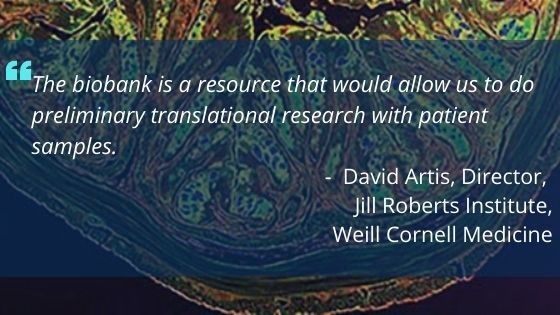Researchers at Weill Cornell Medicine in New York City believe their leading-edge repository of tissue samples can generate more answers for clinicians who treat children with inflammatory bowel disease. In place of snap-frozen samples, Weill Cornell’s IBD biobank uses cryopreservation to keep cell samples alive and study them over the long term.

The team at Weill Cornell actually prefers to call their biobank a Live Cell Bank to distinguish it from other biobanks that don’t work with live cells, said Robbyn Sockolow, MD, the chief of the Division of Pediatric Gastroenterology and Nutrition. “The science behind what we do is really phenomenal. We have a true partnership with basic scientists,” she said.
Established in 2015, the biobank now contains samples from over 2,000 patients, nearly 700 of them pediatric. Around 150 are returning donors, giving the team at Weill Cornell the ability to conduct longitudinal studies.
Click here to read more.
